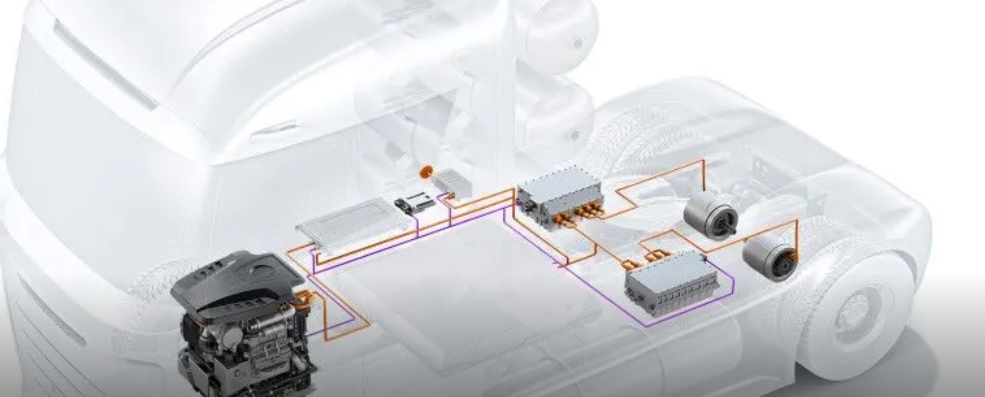
Bosch, the renowned engineering and technology solutions provider, is set to revolutionize the U.S. trucking industry with its cutting-edge hydrogen fuel cell power modules.
These modules have commenced volume production at Bosch’s Stuttgart-Feuerbach plant and are bound for Nikola trucks in the United States. This groundbreaking move aims to expedite the trucking industry’s decarbonization efforts by offering a hydrogen-based alternative to traditional diesel.
Hydrogen technology has long been hailed as a potential game-changer in the quest for sustainable transportation. Unlike conventional battery-electric vehicles that require extended charging periods, hydrogen fueling times are akin to those of diesel refueling, making them far more appealing for long-haul applications—a pivotal factor for the U.S. trucking sector.
Thomas Wintrich, Bosch’s head of Fuel Cell Mobility Solutions, highlighted the transformative potential of hydrogen and fuel-cell technology during a House of Journalists press briefing. He emphasized that the success of hydrogen and fuel cells in the trucking industry hinges on the Total Cost of Ownership (TCO), a critical metric in the trucking world.
“The driver is always TCO in the trucking industry,” Wintrich emphasized, underlining that if hydrogen infrastructure and fuel costs can be made comparable to diesel, it could sway the industry towards adopting hydrogen fuel cells and internal combustion engines. Achieving such cost parity may require government support, but it holds the promise of a cleaner and more efficient trucking sector.
Initial trials of Bosch’s fuel-cell technology in Europe and China have demonstrated remarkable capabilities, with trucks covering approximately 800 kilometers (about 497 miles) on a single fueling. This extended range is especially advantageous for long-distance trucking, where minimizing stops for refueling is crucial. Furthermore, the rapid fueling times associated with hydrogen fuel cells become even more beneficial when considering the future of automated driving. With autonomous vehicles, the need for driver breaks diminishes, and the ability to refuel swiftly becomes a critical advantage.